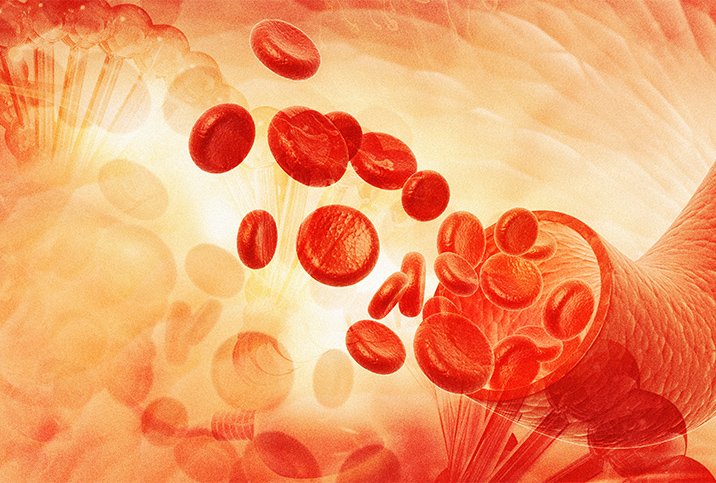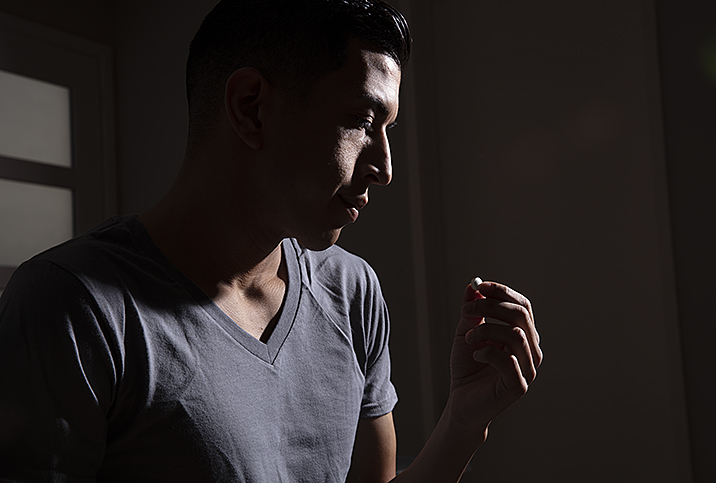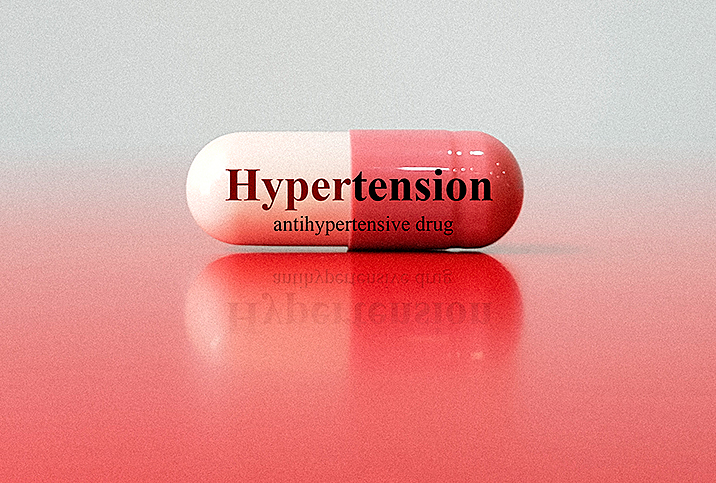How to Treat ED and High Blood Pressure

Men with high blood pressure should be familiar with the old saying, "You're damned if you do and damned if you don't." But if they're not, they soon will be.
This is because untreated hypertension (high blood pressure) can contribute to erectile dysfunction (ED). That's no surprise, but some high blood pressure treatments can also cause ED.
Wow, sounds like it can be difficult to treat ED and high blood pressure simultaneously.
Let's say you're a sensible guy. You like your erection, but you suspect you may have high blood pressure, which you know can affect your penis. So you go in and get your diagnosis and treatment regimen; after all, you want to keep your penis in good working order. Plus, you want to make sure it's attached to a healthy body for as long as possible.
But lo and behold, the medication used to treat hypertension—which can cause ED—also causes ED.
What's a sensible guy to do?
Urologists who specialize in male reproductive health have many thoughts about the complex nature of treating ED and hypertension simultaneously. They also know what you need to know when you're faced with this unhappy combo meal.
The hypertension-ED connection
The first point to understand about high blood pressure is that it's remarkably common. The most recent figures from the Centers for Disease Control and Prevention (CDC) indicate more than 48 percent of people older than 18 in the United States have some degree of hypertension.
At the same time, some estimates put the rate of ED as high as 30 percent among men who have high blood pressure.
"When a male achieves an erection, it's blood flowing into the corpus cavernosa, the tissue that's on either side that acts as balloons and also prevents it from flowing out," said Jatin Gupta, D.O., a men's sexual health specialist at Lehigh Valley Health Network in Pennsylvania and the co-director of the Center of Men's Health at LVPG Urology. "It first starts with the excitatory stimuli and the release of neurotransmitters and chemicals that help with the process of vasodilation and vasoconstriction. So erections are a very delicate balance between inflow and outflow. When you have high blood pressure or hypertension, it completely disrupts the ability of those chemicals to regulate the blood flow."
The culprit
There are plenty of tested, proven medications that have been in use for decades to help manage hypertension. Unfortunately, one of the most popular is also a boner killer: a class of drugs called beta blockers.
Any complication is usually attributed to an imbalance in the chemicals that regulate blood flow to and from the penis.
"It's all about keeping the proper balance between inflow and outflow, vasodilation and vasoconstriction," Gupta explained. "One of the most common [beta blockers] is metoprolol, which is the generic name. That's a notorious medication for also aggravating ED because of that dysregulation."
The alternatives
Luckily, other hypertension treatments are less likely to aggravate ED. It's a matter of getting the right one in a patient's hands.
"Oftentimes, as urologists, we're not prescribing antihypertensives," Gupta said. "The cardiologist or the primary care doctor is. So I always end up having a collaborative discussion with our PCP [primary care physician] and cardiology colleagues to ask if we can put him on a different medication, like a calcium-channel blocker. A common one is Norvasc. Or can we put them on a diuretic like hydrochlorothiazide or can we put them on ACE inhibitors or angiotensin II receptor blockers."
There's not enough space here to go into detail about how each of these medications works, but understand there are plenty of alternative hypertension options that are less likely to aggravate ED.
However, a doctor who doesn't know about the problem can't help.
"If a man has bothersome side effects—ED-related or any bothersome side effect—that person should discuss alternative medications with their prescribing provider," said Amy Pearlman M.D., a men's health specialist and co-founder of Prime Institute in Fort Lauderdale, Florida. "I think if anyone has a question about their body, simply having a question is enough to warrant a visit with a healthcare provider. I think a lot of men feel like they have to be sick or have something that needs to be fixed to warrant an appointment with someone like me. My philosophy is if you have a question or want to learn more about your body, you deserve to be in my office."
The alternatives to the alternatives
For a variety of complex reasons, some guys are best treated with beta blockers. But even they aren't doomed to live in the no-bone zone.
There's no reason you can't take ED drugs such as Viagra and Cialis when you're on Lopressor (metoprolol) or another beta blocker.
"It's very safe to do so, so long as they understand we're counteracting some of the effects of the other medication," Gupta said. "The more medications we start to add, the more the side-effect profile increases."
In other words, the chemical soup swirling around in you and affecting the natural neurochemical workings of your erections—already altered due to high blood pressure—gets more complicated with the more medications you add.
Yet there are still more options.
"Here's where I advocate starting with some device products, that they try something like the Eddie® [by Giddy] device first because it's noninvasive and it's not a systemic therapy," Gupta said. "I'll sometimes put them on a short course of Cialis, but then I'd start to transition. If you're on metoprolol or some of these other medications because you have to be, then we would migrate maybe to injections if the device system isn't working out or maybe talk about implant technology and move away from systemic therapy."
At the end of the day, you want your penis to work right. But in order to work right, your penis needs you to be healthy.
Thankfully, there are a wide variety of options out there, pharmaceutical and otherwise, to treat both ED and high blood pressure.
But the first step is always the first step: Talk to your doctor.


















